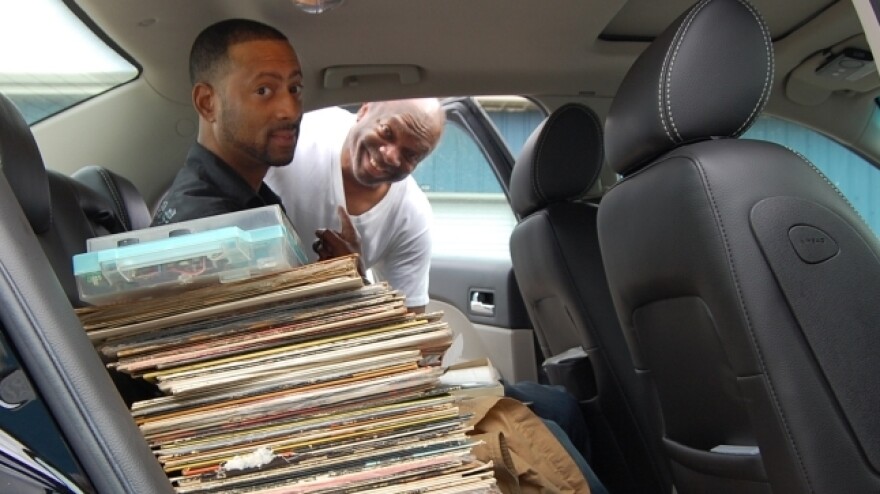I recently took a circuitous trip with the producer and record collector Madlib: Los Angeles to Philadelphia to New Orleans, via Manhattan. Sure, we could have flown to the from Philly to the Big Easy, but the slight detour afforded us the chance to meet — and hopefully buy records from — jazz trumpeter Stanton Davis.
Born in New Orleans and schooled by the renowned Alvin Batiste, Davis made his name in Boston after attending Berklee School of Music in the early 1970s. By '77, he had documented his burgeoning talents on a recently-discovered acetate, guested on a host of jazz, soul and soca records, and released his seminal Brighter Days album with the group Ghetto/Mysticism. I'd found a way to reissue one of Brighter Days' songs in the early '00s, and served as spokesman for the album as best I could. On a trip to Kyoto I found an original copy, which I passed to Madlib; he promptly ranked the record as one of his favorite jazz albums. This appreciation made him the perfect companion for this venture; whether we found records or not, we'd enjoy the meeting just the same.
The kiss of death for any record-canvassing mission is the well-manicured front lawn that leads to a tidy house on a tree-lined street. The records we're searching for — rare, often privately-issued and from any genre — are not normally welcome companions in an aging musician's suburban dream home.
Once he welcomed us inside and described his journey from Boston to New York to this tony section of New Jersey, he reminded me: all of his records sat in a storage unit across town. Davis — an ex-radio DJ who spent part of the early '70s chronicling and playing in the Norwegian jazz scene — had opted for preservation when his wife suggested that he discard his collection.
The drive to his storage unit was as exciting a prelude to vinyl-excavation as it could be. While Davis doubted he'd maintained a copy of his sought-after acetate, he assured us that his collection was full of obscurities, many European, and most of his records were unplayed.
He was right, of course. As we hoisted open the door to his 10'x10' cubby, we saw dozen of boxes labeled "Stanton's Records." In the first box I found a smattering of Coltrane's works alongside New England oddities that I'd never before seen. Madlib didn't recognize them either, but he had eyes for an original copy of Webster Lewis' jazz-funk monster Live At Club 7, as he had purchased a reissue, never thinking he'd stumble across the uber-rare Norwegian original.
We moved quickly, and we only selected the records that looked clean enough to carry to New Orleans. Without time to listen to our finds — and unsure as to how Davis would value his hoard — we pooled our resources and made Davis what we thought was a fair offer. He looked apprehensive at first, but he shut his eyes and slowly nodded in affirmation. He later explained that he had accepted our offer because he knew his records were going to collections where they'd be cleaned, sleeved and appreciated. He mentioned that he'd considered doing just the same in the past, but that time had gotten away from him.
We traded stories for a while before finding that we couldn't top his first-person experiences alongside the likes of Max Roach and George Russell. We acknowledged veritable "jazz-cat" status, snapped some photos and we were on our way.
Copyright 2022 NPR. To see more, visit https://www.npr.org.




